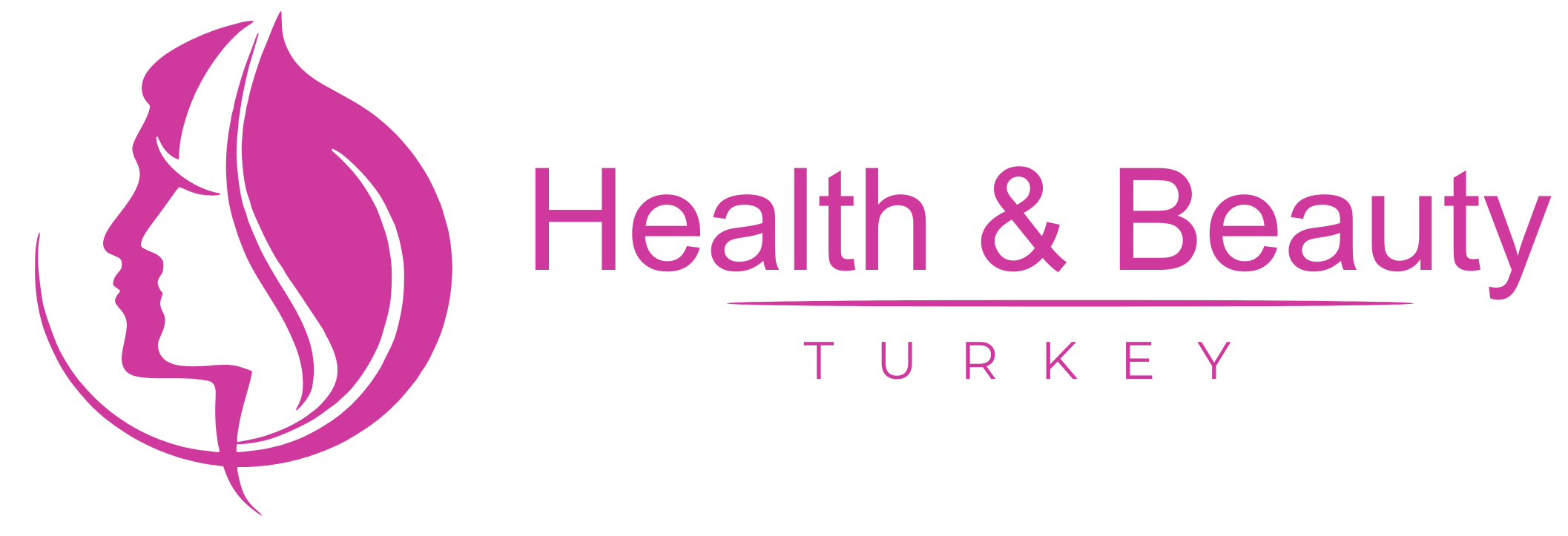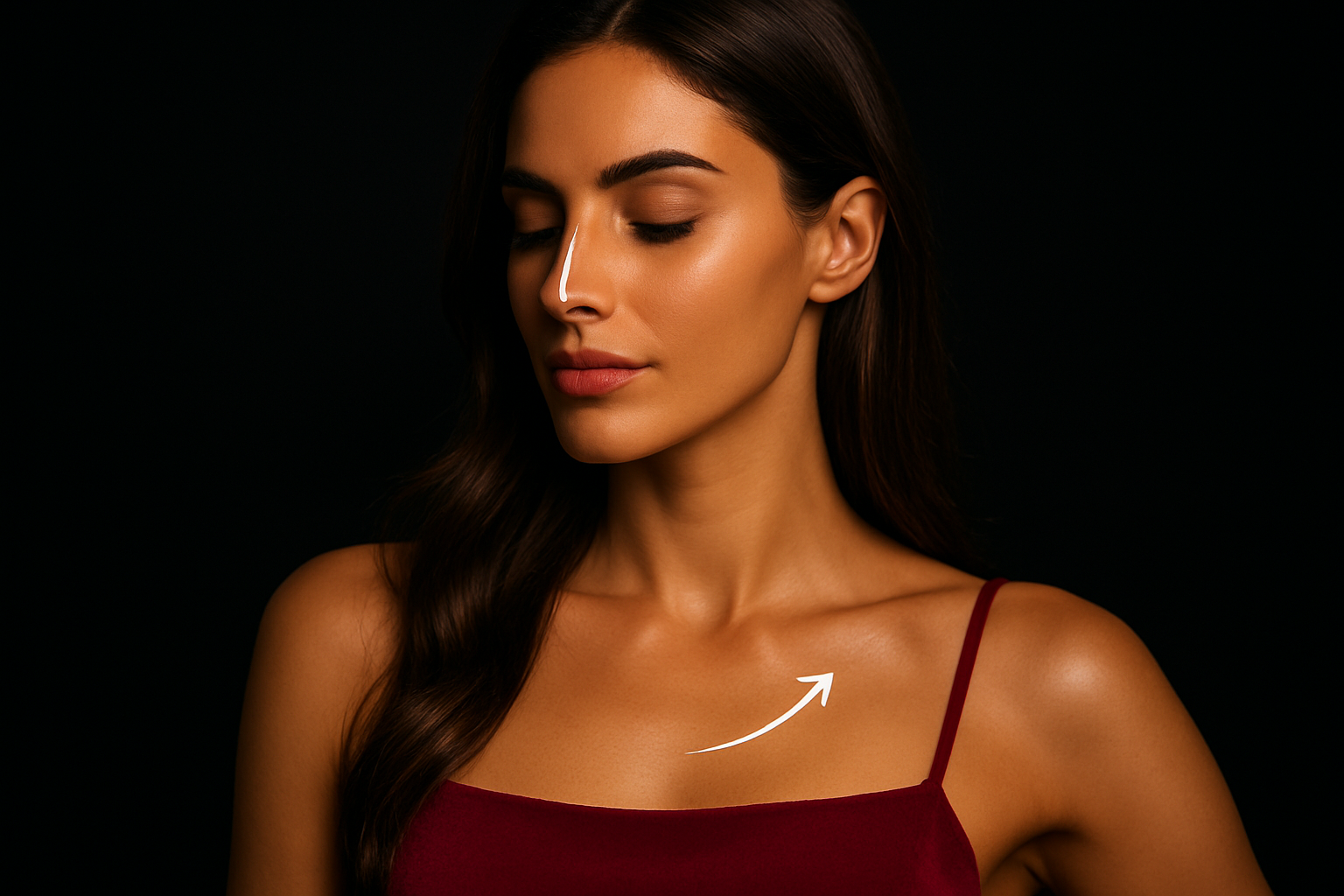Introduction
The nasal septum, the thin wall separating the nostrils, is a vital component of the respiratory system’s function. When this septum becomes deviated, whether due to trauma, a congenital defect, or abnormal growth, it can lead to bothersome breathing problems, in addition to affecting facial appearance. In Turkey, deviated septum surgery, medically known as “Septoplasty,” has become a popular and effective option for patients suffering from this issue, thanks to the advanced expertise of Turkish doctors and the modern technologies available.
At “Health & Beauty Turkey,” we understand that considering surgery, especially in a foreign country, may raise some concerns. This comprehensive article aims to shed light on the septoplasty procedure, explain its details, and how it can help you regain your quality of life, while emphasizing the safety and trust we provide to our patients through our integrated services and our special insurance against medical tourism complications.
Medical Background: Understanding a Deviated Septum
A deviated septum is a common medical condition that affects millions of people worldwide. The deviation can be minor and unnoticeable, or severe enough to significantly obstruct the airway.
Causes and Risk Factors of a Deviated Septum:
- Genetics and Developmental Defects: In many cases, the nasal septum is deviated from birth due to the way the nose grows during fetal development.
- Injuries and Trauma: Trauma to the face or nose, whether during childhood or adulthood, can lead to a fracture or curvature of the nasal septum. These injuries can be sports-related, result from car accidents, or even be the result of an assault.
- Aging: Some changes in the nasal structure may be noticed with age, which can affect the straightness of the nasal septum.
- Previous Surgeries: Sometimes, previous nasal surgeries, even if not intended to treat the nasal septum, can cause it to deviate.
Symptoms of a Deviated Septum:
The severity of symptoms varies based on the degree of deviation. Among the most prominent symptoms a patient may experience are:
- Difficulty breathing through one or both nostrils: This is the most common symptom and may become particularly noticeable during exercise, when suffering from a cold, or when there is nasal congestion.
- Frequent nasal congestion: Irregular airflow can lead to dryness in the mucous membranes, increasing susceptibility to infections and congestion.
- Frequent nosebleeds: The mucous membranes in the deviated part of the septum may become drier and more prone to bleeding.
- Headaches: Some patients may experience headaches, especially in the forehead area or around the nose, due to the pressure caused by the deviation.
- Snoring during sleep: Nasal obstruction can lead to mouth breathing during sleep, which increases the likelihood of snoring.
- Recurrent sinusitis: Blockage of sinus drainage due to a deviated septum can lead to an increased incidence of sinus infections.
- A feeling of pressure in the face: Some patients describe a feeling of heaviness or pressure in the nose and facial area.
- A sensation of dry mouth: Due to involuntary mouth breathing.
- Tinnitus or ear pain: In rare cases, a deviated septum may be associated with pain or problems in the ear.
Diagnosis of a Deviated Septum:
The diagnosis begins with a visit to an ear, nose, and throat (ENT) specialist. The doctor will do the following:
- Medical History: The doctor will listen to the symptoms you are experiencing and ask about any previous injuries or breathing problems.
- Clinical Examination: The doctor uses a rhinoscope to examine the inside of the nose, including the nasal septum. They may also use an instrument called a “nasoscope” to see deeper inside the nose.
- Imaging Tests (if necessary): In some cases, the doctor may order a CT scan or an MRI to get a detailed picture of the structure of the nose and sinuses, and to assess the degree of deviation and its impact on surrounding structures.
Research Updates: Recent research indicates the importance of a functional evaluation of the nose, not only from an anatomical perspective but also from a functional breathing perspective. There is a greater focus on measuring airflow within the nose and assessing breathing-related quality of life before and after surgery, which helps determine the effectiveness of septoplasty for the patient.
Ideal Candidates for Septoplasty
Septoplasty is an excellent option for most people who suffer from breathing problems due to a deviated nasal septum. However, there are some criteria that doctors consider to determine a patient’s suitability for surgery.
Who are Good Candidates?
- Individuals who have difficulty breathing through one or both nostrils: This is the primary indicator.
- People who suffer from chronic nasal obstruction: Especially if this obstruction affects their quality of sleep or their ability to perform physical activities.
- Patients who suffer from recurrent sinus infections: Which may be partially caused by a deviated septum.
- Individuals who have frequent nosebleeds: Related to dryness or irritation in the deviated part of the septum.
- People with a clear medical history of a deviated septum: And a medical diagnosis confirming it.
- Individuals with realistic expectations: They understand that the surgery is primarily aimed at improving breathing and may slightly improve appearance, but it is not purely a cosmetic nose surgery (although it can be combined with rhinoplasty).
Who Might Not Be an Ideal Candidate?
- People with an active infection in the nose or sinuses: This infection must be treated before surgery.
- Individuals with uncontrolled bleeding disorders: Their condition must be carefully evaluated.
- Patients who do not have any clear symptoms: If the deviated septum is not causing any breathing problems or other symptoms, surgery may not be necessary.
- Very young children: As the nose may not have fully completed its growth, and doctors may prefer to postpone the surgery.
*People with unrealistic expectations: Such as expecting a drastic change in the shape of the nose without undergoing a concurrent rhinoplasty.
Preparing for Septoplasty in Turkey
Good preparation before traveling to Turkey for the operation ensures that things go smoothly and contributes to achieving the best possible results. At “Health & Beauty Turkey,” we provide comprehensive guidance to help you every step of the way.
Before Travel:
- Initial Consultation: Start with a detailed consultation with our medical representatives at “Health & Beauty Turkey.” Share your medical history, symptoms, and any concerns you have. We may ask you to send photos of your medical file or results of previous tests.
- Choosing the Doctor: We will help you choose the most suitable surgeon for you based on their experience and specializations.
- Medical Booking: Once you have chosen your doctor, your initial consultation appointment in Turkey will be arranged and a surgery date will be booked.
- Medical Tests: Our team will provide you with a list of required medical tests that you can perform in your country before traveling, or you can have them done upon your arrival in Turkey at our accredited clinics. These tests usually include:
- Complete blood count (CBC).
- Blood clotting tests (PT, PTT, INR).
- Urinalysis.
- Electrocardiogram (ECG) for older adults or those with a cardiac history.
- Other tests as needed based on your health history.
- Stopping Certain Medications: You may be asked to stop taking certain medications, such as aspirin, ibuprofen, and vitamin E supplements, as they can increase the risk of bleeding. This must be done under medical supervision.
- Quitting Smoking: If you are a smoker, it is strongly recommended to quit smoking for weeks before the surgery, as smoking negatively affects the healing process.
Health Tips and Lifestyle Adjustments:
- Maintain a healthy diet: Eat foods rich in vitamins and minerals to support your immune system and the healing process.
- Adequate hydration: Drink plenty of water.
- Get enough sleep: To promote overall health.
- Avoid alcohol: For a few days before the surgery.
The Septoplasty Procedure Steps
Septoplasty is a delicate surgical procedure aimed at reshaping or straightening the nasal septum to open the air passages.
Before the Procedure:
- Final Consultation and Evaluation: Upon your arrival in Turkey, you will meet with the surgeon for a thorough examination and final evaluation. The procedure will be explained in detail, and all your questions will be answered.
- Photography: The surgeon may take pictures of the nose for documentation and comparison purposes.
- Anesthesia: The operation is often performed under general anesthesia, which means you will be asleep and will not feel any pain during the surgery. In some simple cases, local anesthesia with a sedative may be used. The anesthesiologist will discuss the appropriate anesthesia options with you.
During the Procedure (Modern Techniques):
Septoplasty is usually performed through internal nasal incisions, which means there are no visible external scars.
- Internal Incision: The surgeon makes a small incision inside the nose to access the septum.
- Lifting the Mucous Membrane: The thin mucous membrane covering the septum is carefully lifted.
- Straightening the Septum: The surgeon then removes or reshapes the deviated parts of the cartilage or bone from the septum. Sometimes, the surgeon may need to break parts of the septum and reposition them.
- Repositioning the Mucous Membrane: The mucous membrane is put back in place.
- Stabilization: In some cases, the surgeon may use internal nasal splints or special packing to hold the septum in its new position and aid in healing. These splints are usually made of silicone and are removed after a few days.
- Innovative Techniques: Modern techniques use precise instruments and surgical endoscopes to increase the surgeon’s accuracy and reduce tissue damage. Minimally invasive techniques may be used to shorten the recovery period.
After the Procedure (Immediate Recovery and Follow-up):
- Post-Anesthesia Phase: After waking up from anesthesia, you will spend some time in the recovery room under observation.
- Initial Symptoms: You may feel some pain, swelling, bruising around the eyes, and difficulty breathing through the nose due to swelling and splints (if used).
- Hospital Discharge: The patient is usually discharged on the same day as the surgery or the next day.
- Home Care: Our team at “Health & Beauty Turkey” will provide you with detailed instructions on wound care, using saline nasal sprays, and how to manage any discomfort.
- Medical Follow-up: Appointments will be scheduled to follow up on your condition with the surgeon, including an appointment to remove the splints or packing if necessary.
Recovery Period:
- The First Few Days: Focus on rest and avoid any physical exertion. Use extra pillows to elevate your head while sleeping.
- The First Week: Breathing will gradually improve as the swelling subsides. Avoid strenuous activities and blowing your nose forcefully.
- The Following Weeks: The healing process continues. Bruising and swelling may disappear completely. You can gradually return to daily activities and work.
- Final Results: The complete final results of the septoplasty may take several weeks to a few months, as the tissues continue to stabilize.
Advanced Treatment Options in Turkey
Turkey is considered a leading global center for medical tourism, offering the latest technologies and expertise in nasal surgery.
Modern Techniques and Innovations:
- Endoscopic Surgery: The use of precise endoscopes allows for a clear view of the internal parts of the nose, which increases surgical accuracy and reduces surgical invasiveness.
- Endoscopic Septoplasty Techniques: This technique uses specialized tools that allow the surgery to be performed through narrow nasal openings, which reduces swelling and recovery time.
- Use of Tissue-Preserving Techniques: Surgeons focus on removing as little cartilage and bone tissue as possible, focusing on reshaping rather than complete removal, to preserve the nose’s structure and function.
- Integration with Rhinoplasty: In many cases, septoplasty can be combined with rhinoplasty to improve the shape of the nose in addition to breathing function.
Advantages of Treatment at “Health & Beauty Turkey”:
- Expert Doctors: We collaborate with specialized ear, nose, and throat surgeons who have years of experience performing septoplasty with the latest techniques and enjoy a global reputation.
- Advanced Medical Facilities: We provide access to hospitals and clinics equipped with the latest technologies and medical devices, which adhere to the highest international quality and safety standards.
- Comprehensive Care: We offer integrated treatment packages that include consultations, tests, the operation, comfortable hotel accommodation, airport transfers, and the necessary medical follow-up.
- Competitive Costs: We offer excellent prices for surgery while maintaining the highest levels of medical quality, making Turkey an economical and practical destination for treatment.
- Language Support: We provide specialized interpreters to ensure effective communication between you and the medical team.
Addressing Patient Concerns: Medical Tourism Insurance
At “Health & Beauty Turkey,” we recognize that the thought of traveling for surgery can raise concerns about potential complications. Your safety and comfort are our top priority, which is why we offer you Medical Tourism Complication Insurance.
What the Insurance Covers:
- Coverage for Hospital Treatment: This insurance provides comprehensive coverage for hospital treatment costs if you face any complications requiring hospitalization after the surgery.
- 6-Month Validity: The insurance is valid for a full six months after the date of your surgery, giving you long-term peace of mind.
- Coverage for Revision Surgery Costs (if necessary): In the event that your condition requires corrective surgery due to complications, the insurance covers the costs of this surgery.
- Coverage for Travel and Accommodation: The insurance also covers the additional travel and accommodation costs you may need in Turkey for the revision surgery.
- Terms of Use: This insurance is only valid in clinics and hospitals accredited by the Turkish Ministry of Health, with which we are committed to cooperating exclusively.
This insurance is part of our commitment to providing a safe and reliable treatment experience, ensuring you receive the best care without worry.
Practical Tips for International Patients
To make your medical journey in Turkey a smooth and comfortable experience, we offer you some important tips.
Travel Tips:
- Early Planning: Start planning your trip well in advance of your surgery date, including booking flights and accommodation.
- Luggage: Pack light and comfortable luggage. You may need loose-fitting clothes that are easy to put on and take off.
- Early Arrival: It is preferable to arrive in Turkey a day or two before the surgery date to settle in and acclimatize.
- Transfers: Our team will arrange all your transfers to and from the airport, as well as transfers to the clinics and hospital.
Mental Preparation:
- Positivity: Maintain a positive and optimistic outlook regarding the surgery results.
- Support: Talk to your family members or friends about your concerns and prepare for the stage.
- Relaxation: Practice relaxation techniques such as meditation or listening to calm music.
Post-Treatment Tips:
- Adherence to Instructions: Strictly follow all the doctor’s instructions regarding wound care, medications, and imposed restrictions.
- Good Nutrition: Eat a healthy and balanced diet to support the healing process.
- Adequate Rest: Give your body enough time to recover, and avoid stress or lifting heavy weights.
- Follow-up: Do not miss your follow-up appointments with your doctor.
*Avoid Smoking: Continuing to avoid smoking is crucial to ensure the best results.
Cost of Septoplasty (Deviated Septum Surgery) in Turkey
Turkey is a prime destination for septoplasty operations due to the quality of services provided and the competitive prices compared to many other countries. The cost of septoplasty in Turkey is influenced by several factors, including:
- Surgeon’s experience and reputation: Surgeons with extensive experience and a global reputation may have higher prices.
- The level of the hospital or clinic: Hospitals equipped with the latest technologies that offer luxury services will have different prices.
- The technology used: Some advanced techniques may increase the cost.
- The need for additional procedures: If septoplasty is combined with rhinoplasty or sinus treatment, the cost will increase.
- Length of hospital stay: Varies depending on the case.
Based on the latest available sources and information, the average cost of a septoplasty operation in Turkey often ranges between $2,500 and $4,500. It is important to note that these are average prices and can vary significantly.
At “Health & Beauty Turkey,” we believe in complete transparency. When you contact us, we will provide you with a detailed assessment of your case and a precise cost estimate that includes all the services you need, including the operation, accommodation, transportation, follow-up, and our special complication insurance.
Why Choose “Health & Beauty Turkey”?
At “Health & Beauty Turkey,” we pride ourselves on providing a unique treatment experience that combines high medical expertise, the latest technologies, and outstanding service.
Our Doctors’ Expertise:
- Specialized Doctors: We collaborate with a selection of highly skilled ear, nose, and throat doctors who hold international certifications and have extensive experience in the field of septoplasty.
- Latest Technologies: Our doctors are keen to use the latest surgical techniques to ensure precise and safe results.
Comprehensive Service Support:
- All-Inclusive Packages: We offer packages that cover all your needs, from the first consultation to the final follow-up.
- Trip Coordination: We help you organize your trip, including flight and hotel bookings.
- Reception and Transfer Services: We provide you with a reception at the airport and comfortable transport to your hotel and to the clinics.
- Personal Interpreters: To ensure smooth and effective communication.
- Post-Surgery Care: Close monitoring of your health status and providing the necessary support during the recovery period.
Safety and Trust:
- Commitment to International Standards: We only work with accredited hospitals and clinics that adhere to the highest standards of quality and safety.
- Complication Insurance: We offer medical tourism insurance as an additional guarantee for your safety and comfort.
Treating a deviated septum is not just a medical procedure; it is the restoration of your ability to breathe freely, improving your daily quality of life, and sleeping better. At “Health & Beauty Turkey,” we are committed to providing the highest levels of medical care to ensure that your treatment experience in Turkey is safe, comfortable, and successful.
Our doctors’ expertise, the modern technologies, and the comprehensive services we offer, in addition to our complication insurance, are all factors that guarantee you peace of mind and absolute confidence. Let us help you restore your health and breathe perfectly.
Do not hesitate to contact our medical representative now for a free and personal consultation. Discover how we can help you achieve your treatment goals safely and effectively in Turkey.




